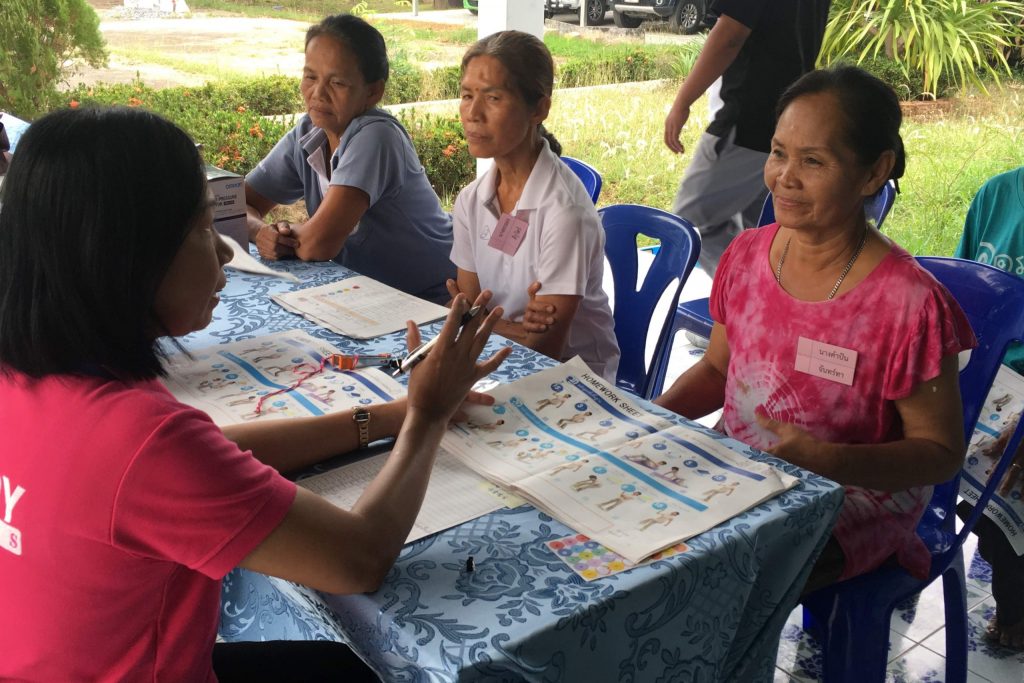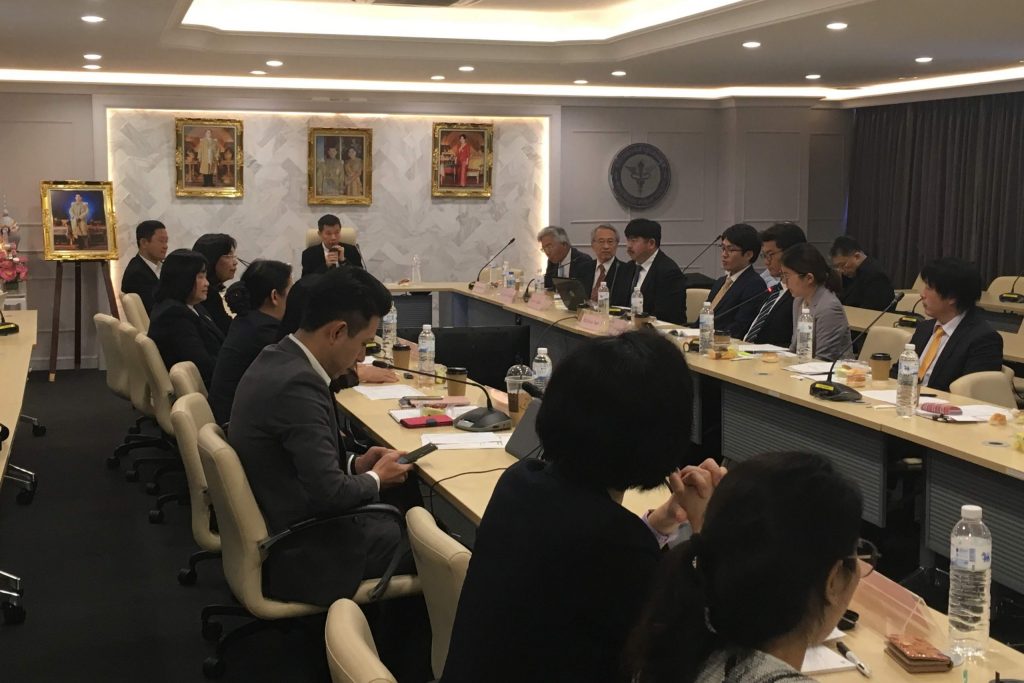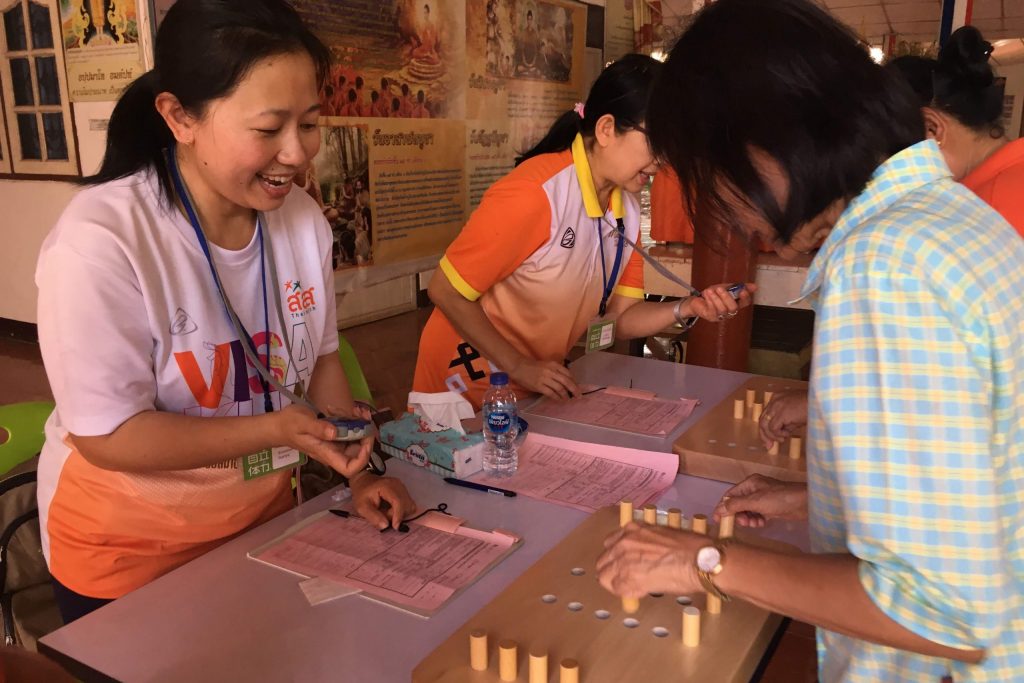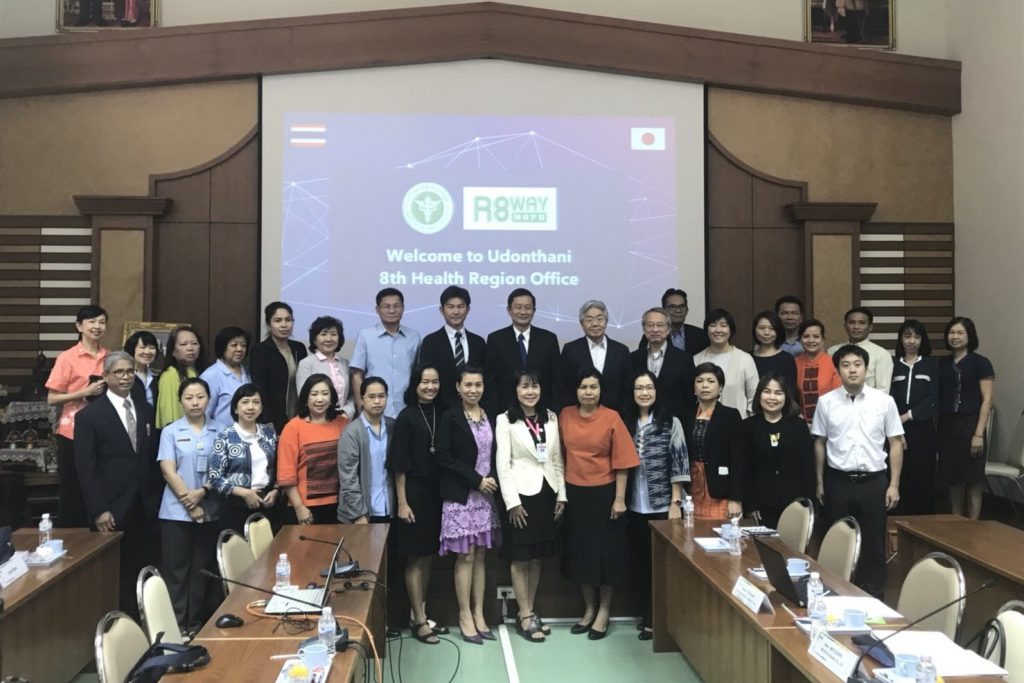2021 HAPI Grand Prize Winner
One avenue for addressing the rising cost of care is through preventative care to extend healthy life expectancy and reduce the financial burden of demographic change. This concept is not yet well established in Thailand, but recently a Japanese company, Hatachi Industry, has seen success in introducing their own Self-Sustained Movement (SSM) Program, a preventative care system developed under the supervision of Shizuoka University, to seven rural provinces in Northeastern Thailand.
The SSM Program has been in use in Japan since 2006 and consists of 3 elements: (1) the SSM Test, which is used to evaluate the physical capabilities of the older person; (2) SSM Training, a selection of light load muscle training activities for older people; and (3) an SSM Master and SSM Trainer certification training course. This system is designed to be easy, fun, and motivating for participants, as they can have a sense of accomplishment in their own progress through participating in the program.
To implement the program in Thailand, Hatachi Industry worked in cooperation with Mahidol University to conduct a feasibility study starting in May 2015. This work confirmed that the program had high applicability to the Thai government’s elderly policy, and starting in January 2018, they implemented a Japan International Cooperation Agency (JICA) pilot project, which will run through December 2021. The program had to be adjusted to account for the characteristics of Thai people, so new versions of the training manual and software for analyzing SSM test results were created.
Working closely with Thai counterparts such as Mahidol University and the Thai Ministry of Public Health has been a key element in successfully implementing this pilot. For example, the Tokyo Metropolitan Institute of Gerontology worked with Mahidol University to conduct research on the efficacy of the program through a randomized controlled trial. The 8th Regional Health Office of the MOPH managed the actual training programs and played a significant role both in pilot projects and the actual dissemination. They managed the training programs which were carried out in local clinics and temples, and there are now 45 Thai SSM Masters and 71 Thai SSM trainers, who have been trained to use the program.
One unforeseen outcome of implementing the program in Thailand was that the SSM test was effective for screening for frailty among older people. Thailand uses the Barthel Index (BI) as an Activities of Daily Living (ADL) evaluation index to identify the health status of the elderly. However, when using the SSM test, which provides people with an “SSM Age” it was found that 11 percent of the older people classified as “healthy” using the Thai framework were part of the group with the lowest overall score on the SSM test. In other words, these older people were one step away from requiring nursing care, despite having been identified as healthy.
The SSM training itself also saw considerable success in improving the health of older people. The concept of an SSM age, which could be compared to the participants actual age, provided them with motivation to improve their physical health. In a study of 129 participants, 62 percent had improved their physical strength through participating in the program. Furthermore, it was confirmed that the training had a greater effect on those who had already been classified as frail via the SSM test.
The original development of SSM was funded through Japanese government subsidies. Meanwhile, the feasibility study and pilot project were both funded by JICA as part of Japan’s official development assistance (ODA). Starting in November 2021, it is expected that the Thai local government will provide funding through the National Health Security Office to implement the SSM Program in seven provinces.
KEYS TO SUCCESS
- Close collaboration with Thai partners at Mahidol University and the Ministry of Public Health ensured effective transfer of Japanese know-how and technology
- Had a comprehensive plan with clear goals for introducing an already tested product with a focus on transferability and sustainability
- SSM training activities were held in clinics and temples that were already familiar to participants and provided a community space to enjoy exercising together, which was something that appealed to Thai people.
- SSM training itself is fun, easy, and the SSM test can provide motivation to older people who may want to improve their “SSM age”
- The more granular nature of the SSM test when compared to other indicators of health allowed the program to better identify frail older people who were one step away from needing nursing care
- Introducing the concept of preventative long-term care through the SSM Program can help Thailand lessen the impact of its aging population
Related Resources
(in Japanese)





